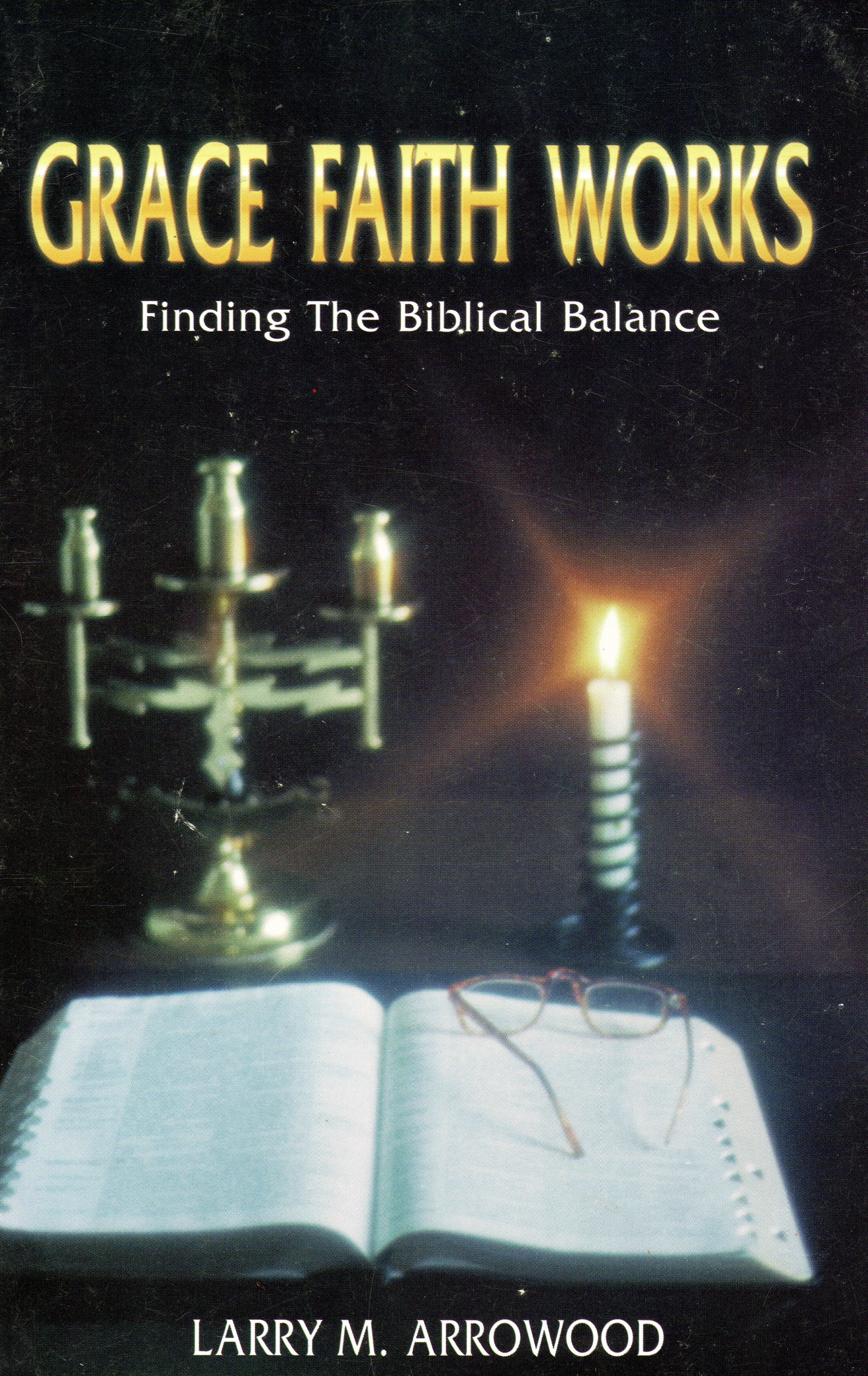What is grace? It is the unmerited favor of God. The awesome God, who created all, did not have to stoop to save a human race kicking Him on the shin and choosing to follow Satan. We did not deserve nor request it, nor were we able to attain it, God simply decided to make it available to all. While we were yet sinners, Christ died… [Romans 5:8]. Something that interests me is that the scripture gives no indication that God showed any grace to Satan and the host of fallen angels, but to us He did [II Peter 2:4].

By Larry M. Arrowood
To View the Entire Article, Click Here
To Download the Entire Article Directly to Your Computer, Click Here
To View the Outline, Click Here
To View the PowerPoint, Click Here
Let’s examine grace.
The other day, my eldest son, Andrew, ran a red light. Fortunately, no cars were going the other way through the intersection. Unfortunately, a city policeman was stopped at the light. The ensuing conversation went something like this.
“Can I see your driver’s license?”
“Sure, I’m sorry officer,” Andrew apologized. Studying the driver’s license he asked,
“What’s your dad’s name?”
“Larry Arrowood.”
“Is he the pastor of the Pentecostal church uptown’?”
“Yes, sir.”
“What would you say if I just rip you some and let you go’?” the officer questioned.
“Start ripping!” Andrew elatedly responded.
Guilty? Yes. Could he change the fact that he ran the red light? Absolutely not. Did he deserve a ticket’? The law says yes. Further, to stop at 10,000 red lights would not change the issue that he ran one. To obey all traffic rules the rest of his life does not erase the one violation. Andrew could not undo, nor redo. But the officer made the decision not to charge him. Grace! Unmerited favor. But, I ask, should he continue to run red lights?
Grace stands alone. It does not need to be propped up by good works. Christ died for us, expressing grace, while we were yet in our sins. And if good works could save us, Christ died in vain. Why then did Christ die? To pay the debt of the sins of mankind. For grace does not just pardon or excuse sin. When we are baptized (buried with Christ is the Biblical phraseology), Christ’s atoning blood is applied to our sins — it’s as if we died to pay for our sins — and we are free from the debt of sin, for it is considered paid in full. Justice, the deserved punishment demanded that man’s sins be paid for; not just excused. God decided that He would pay that debt by His own death. Though sinless, Christ submitted to a cruel death, thus satisfying the punishment that justice demanded for sin. Does that mean that all of mankind will be saved’? Absolutely not, for the righteous can scarcely be saved [I Peter 4:18]. The basic difference between sinners and saints is the applied grace of God. “All have sinned and come short of the glory of God” [Romans 3:23]. Has God then shown favoritism, giving grace to a select few’? No. His death brought grace to all mankind; mankind must accept it individually, else all the world — Jews, Gentiles, Moslems, Atheists, Agnostics, Hitler, Jim Jones — would automatically be saved. But the scripture is quite plain; many will be lost while few will be saved. Enter ye in at the strait gate: for wide is the gate, and broad is the way, that leadeth to destruction, and many there be which go in thereat: Because strait is the gate, and narrow is the way, which leadeth unto life, and few there be that find it [Matthew 7:13,14].
To View the Entire Article, Click Here
To Download the Entire Article Directly to Your Computer, Click Here
To View the Outline, Click Here



